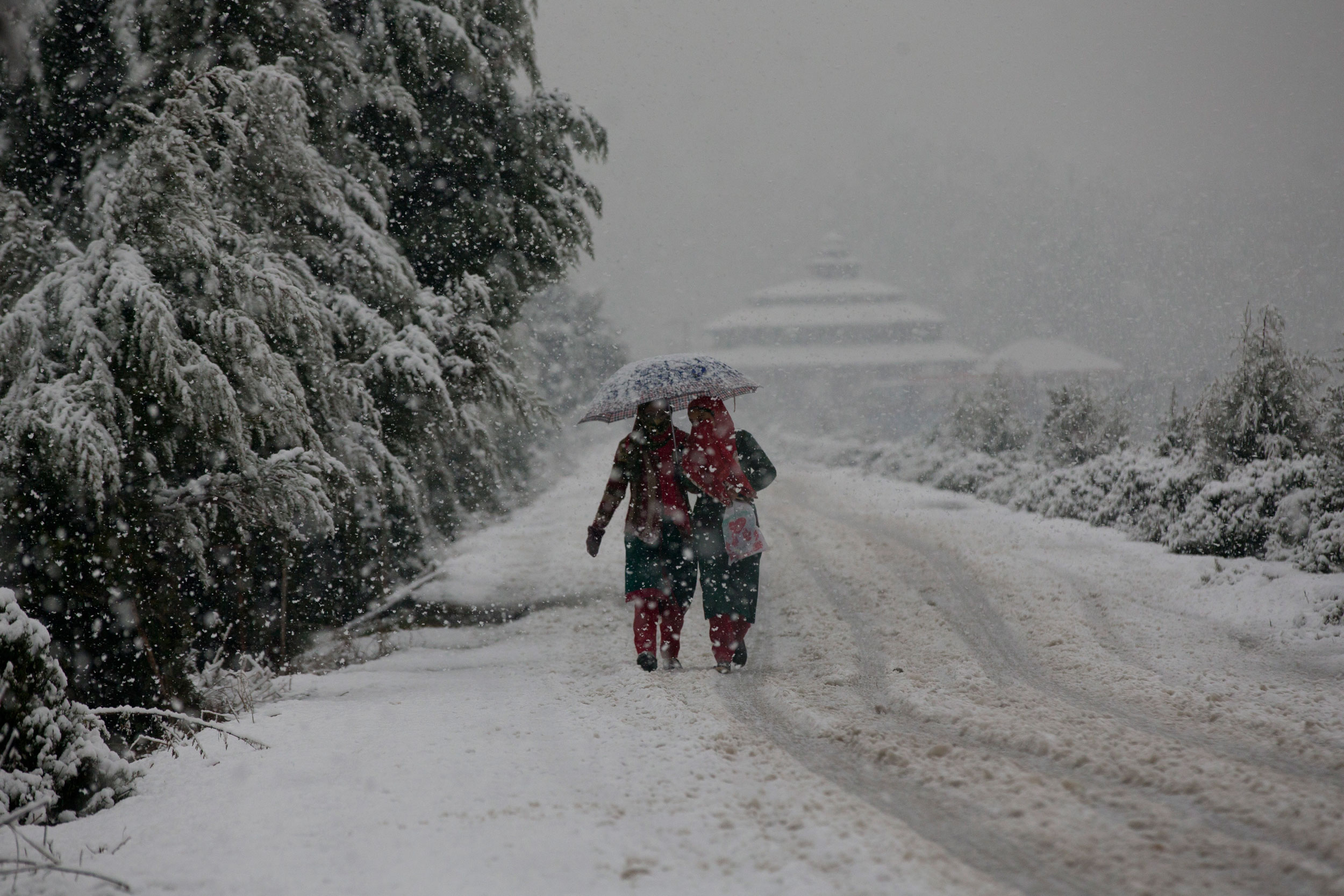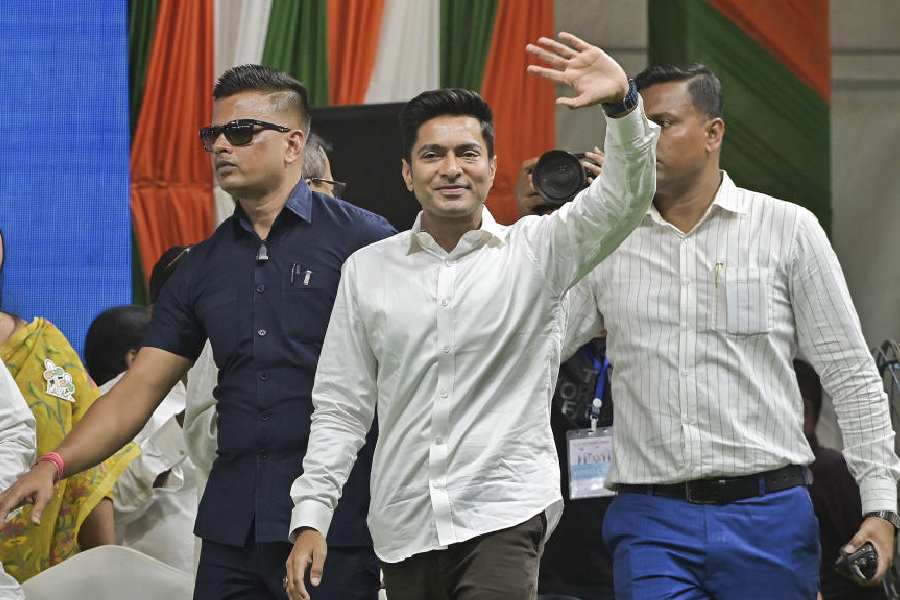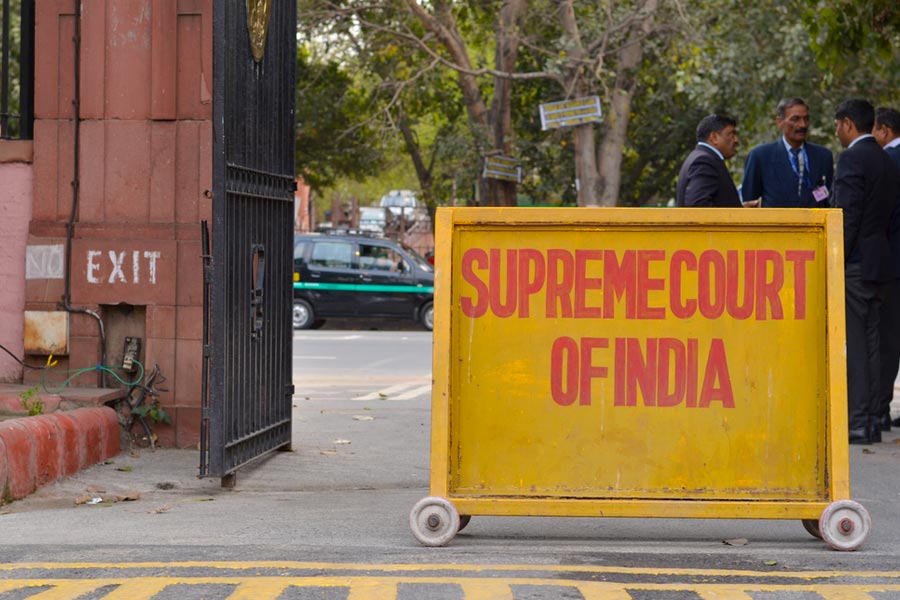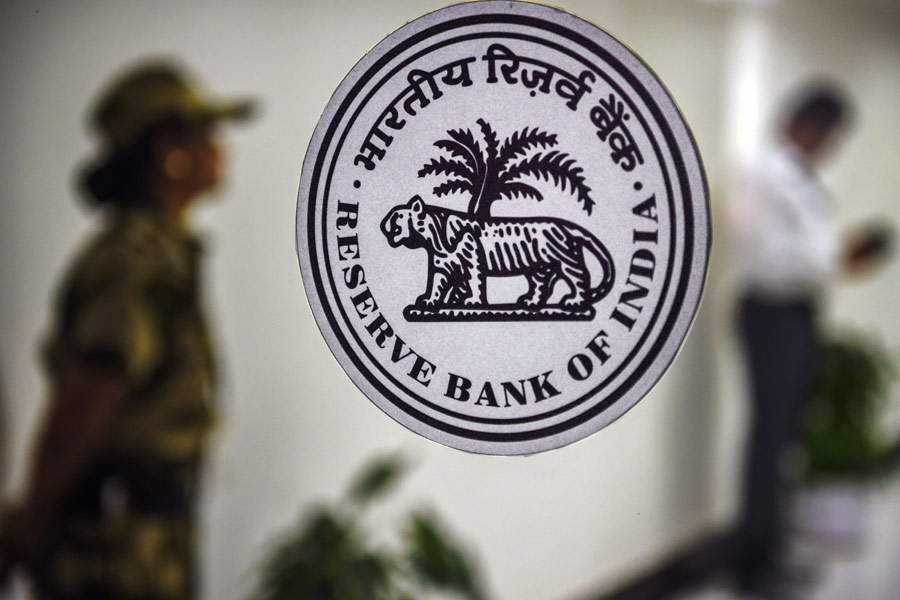Suffering in silence
Sir — Many of us wondered how a majority of the Indian population can treat the plight of the residents of Jammu and Kashmir with abject indifference. Ramachandra Guha’s article, “Greater harm” (Nov 9), is important in this regard since his voice attracts the attention of a wide spectrum of people. Another reason why this article carries weight is that it documents first-hand experiences of the ground reality in the Valley.
However, one cannot agree with Guha’s view that “the abrogation of Article 370 has backfired horribly”. The abrogation was a strategy to consolidate the majoritarian vote bank of the Bharatiya Janata Party. That aim clearly has been achieved.
Sanjit Ghatak,
South 24 Parganas
Sir — Ramachandra Guha makes a solid case against the abrogation of Article 370 in his piece. In this regard it is important to note that Narendra Modi and Amit Shah have claimed that they are trying to save Kashmiris from evil, dynastic politicians who held sway over the Valley. Does this mean that all is well with the states that have BJP at the helm? How is the BJP any different from dynastic parties given its greed to do away with Opposition parties and consolidate its position in power at the cost of democratic principles? The BJP has only further alienated citizens of Jammu and Kashmir.
Jayaraman N.,
Chennai
Sir — Although an overwhelming majority of the country either seems to feel immense pleasure at the plight and humiliation of Kashmiris or are indifferent to their woes, there are still sensible people who feel as perturbed as Ramachandra Guha regarding the situation in Jammu and Kashmir. How would those celebrating the abrogation of Article 370 feel if they were subjected to a similar shutdown or if they failed to take their suffering kin to the hospital? Would they have liked children as young as 10-14 years of age being picked up from their homes in the dead of the night to be sent to prisons or tortured?
I am ashamed and disgusted after going through the various reports mentioned in Guha’s article. Indeed, it seems that although I cannot be counted among the “nationalist” brigade cheering on the despair of Kashmiris, I, too, am responsible for the state of affairs — at least morally.
Kajal Chatterjee,
Calcutta
Sir — The piece, “Greater harm”, comprehensively analyses the terrible mistake that the Narendra Modi-led government committed by abrogating Article 370. This has caused deep emotional and financial pain to people in the Valley. This has also created distrust in the rest of India. These wounds will be hard to heal. The BJP government has acted foolishly and made an already difficult situation worse. History will judge its action as a terrible blunder.
Sunil M. Caleb,
Calcutta
Sir — There are some among the so-called educated society who are making some ridiculous comparisons about the situation in Kashmir. Upon being asked to imagine how the Kashmiris must be feeling without any telephone or internet connection for over 100 days, they counter by asking how Kashmiri Pandits must have felt without their homes. It is important to highlight here that the Pandits suffered just as ordinary Kashmiris are suffering today. The only difference is that militants have been replaced by the State machinery.
Roshni Sen,
Calcutta
Save the mongoose
Sir — Art may be priceless, not so the articles required to create art. The costliest item in an artist’s tool kit is perhaps the innocuous paintbrush. For every kilogram of mongoose hair that is used in brushes, about 50 animals are killed. Apparently one lakh mongooses die for art annually. The discourse on conservation in India is focused on bigger animals like the tigers and elephants — although even here the success is limited. Smaller animals often slip through the gaps. Word must be spread among artists to shun the use of natural brushes; reducing demand might just save the mongoose.
Kakoli Das,
Calcutta










